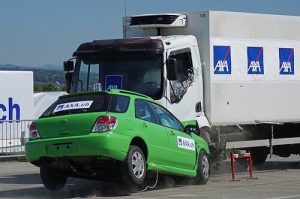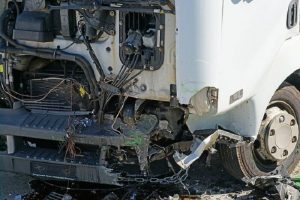Commercial truck insurance is the most comprehensive type of commercial vehicle insurance available. It protects your business from liability, cargo loss or damage, third-party bodily injury, and property damages that may occur during the course of your operations. Commercial Truck Insurance typically covers both you and your employees as well as any non-owned vehicles used in connection with your business.
What is commercial truck insurance?
Commercial truck insurance is the most comprehensive type of commercial vehicle insurance available. It protects your business from liability, cargo loss or damage, third-party bodily injury, and property damages that may occur during the course of your operations. Commercial Truck Insurance typically covers both you and your employees as well as any non-owned vehicles used in connection with your business.
What does commercial truck insurance cover?
Some specific events which are covered by a typical policy include fire, theft (or attempted theft), collision, explosion, windstorm or hail, earthquake or volcanic eruption, falling objects such as rocks or trees, weight load shift (collapse), overturning due to excessive weight on one side only, breakage of axles/shafts/hubs, overturning in a turn or on a curved surface due to axle imbalance, failure of brakes and breakaway from the towed unit. Also, keep in mind that insurance for semi truck drivers and trucking companies covers more than just your trucks. If you need to rent a car while another vehicle is in the shop, it would be covered under some policies as well.
What does it not cover?
The following losses are not covered by standard commercial truck insurance: war, nuclear hazard, wear and tear (mechanical breakdown), floodwaters collision while being operated by an intoxicated person under age 21 if convicted for driving under the influence, damage caused by a driver while under the influence of alcohol or drugs.
What should you consider when purchasing insurance?
Make sure to discuss any and all options with your agent and understand exactly what’s covered in your policy. Many carriers offer additional coverage, so it may be worth looking into whether they can help prevent losses from happening in the first place through their safety programs such as Driver Training, Safety Consultation Services (for drivers), Vanishing Load Detection Systems (cameras that detect if trailers are improperly loaded) and Dedicated Fleet Managers who keep track of how much equipment is being used on a daily basis for companies which have fleets exceeding 50 units.
What to do if you’re in an accident?
The time after you’re in an accident is a hectic one, and it can be difficult to remember everything that needs to happen. Your first priority should always be the safety of yourself and others involved before moving on to assessing damage or calling your insurance company. In case of injury, call 911 immediately. If there are no injuries but anyone has been injured as a result of the incident then you must still report it by dialing *55 from any cellular phone within 48 hours (except Sundays) following the date of loss which shall also constitute your notification of the claim.
Secondly, you must secure the accident scene by activating your flashers and parking in a safe place, out of traffic. If there are no injuries involved but the damage has occurred then photos should be taken to document all damages before any repairs or clean-up is done. When calling for help it’s important that you know what kind of insurance you have so they can direct you on how best to handle the situation.
Finally, make sure not to admit fault when speaking with anyone besides law enforcement officer at an accident site regardless if someone was injured or vehicles need repair work because admitting guilt could affect your ability to get compensation from other parties who were responsible for causing the incident which brings us back full circle around why having commercial truck insurance is vital - especially when you own a business.
The importance of getting the right type of coverage for your business
First, it’s important to think about what type of coverage will be best for your company based on the size and amount of equipment you have as well as how much use they get each year which is especially essential if they tend to see more wear than others such as those in construction or delivery services who may also need additional protection from cargo loss since their trucks will likely come back with an empty space where something should be at times.
A good way to determine this would be by looking at a cross-section of all vehicles involved in accidents during the last five years and using them as a basis for comparison when determining insurance values.
How to find the best rates on commercial truck insurance policies
The best way to find the lowest rates is by comparing quotes from various carriers. You can do this online, over the phone, or work with an agent directly who will give you personalized advice based on your needs and wants as well as how much risk you’re willing to take on yourself if something were to happen.
Ones that are good at what they do should also be able to provide exceptional customer service whenever needed which means being available even after business hours due to emergencies, responding quickly when questions arise during a claim process, or departing policy changes for example through email, text message or social media posts within minutes of it happening so customers aren’t left wondering why their coverage has changed without notice.
Why it’s important to get quotes from multiple providers before buying a policy
Carriers will factor in where you work and how much time is put into your profession when determining premiums which means that it’s important to shop around before signing with one company since they could potentially charge different rates based on the industry itself.
If a customer doesn’t make their purchase decision until after receiving an offer from a carrier, there may not be any other options available because of high demand for coverage or lack thereof especially if something happened recently which resulted in many customers canceling their policies at once leaving less competition between companies who are willing to accept applications from new clients.

Commercial truck insurance is a type of commercial vehicle coverage that covers damages from accidents and other incidents. So now you know everything there is to know about commercial truck insurance - what it covers, who or what qualifies for coverage.






























